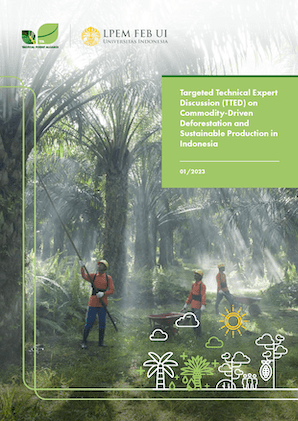In the past decade, the Government of Indonesia has exerted significant efforts to increase access to formal financial services, particularly by encouraging branchless banking services for financial inclusion (Layanan Keuangan Tanpa Kantor Dalam Rangka Keuangan Inklusif/Laku Pandai). Branchless banking allows banks to penetrate remote and rural areas through their representative agents. However, despite the massive increase in the number of Laku Pandai (branchless banking) agents, the number of accounts opened per agent and the amount of savings put in the account per agent has not increased considerably (Graph 1 and 2). Furthermore, while 70.3% of adults have used a product or service from a formal financial institution, only around 55.7% of Indonesian adults are categorized as account holders in 2018, according to the Financial Inclusion Key Indicators issued by SNKI (Secretariat of National Strategy for Financial Inclusion).
WHY DON�T PEOPLE SAVE MORE IN BANKING AGENT? EVIDENCE FROM LAKU PANDAI PROGRAM IN INDONESIA
Wednesday June 16th, 2021

Categories
Recent Post
The Impact of COVID-19 on Voter Turnout in the 2020 Regional Elections in Indonesia: Do Voters Care About Health Risks?
Thursday March 21st, 2024
Macroeconomic Analysis Series: BI Board of Governor Meeting, March 2024
Wednesday March 20th, 2024
Related Post

Monday February 13th, 2023
Targeted Technical Expert Discussion (TTED) on Commodity-Driven Deforestation and Sustainable Production in Indonesia

Thursday December 8th, 2022
Enhancing Philanthropy’s Role in SDGs Financing in Indonesia: The importance of achieving SDGs, the role of philanthropists, and stakeholders collaboration

